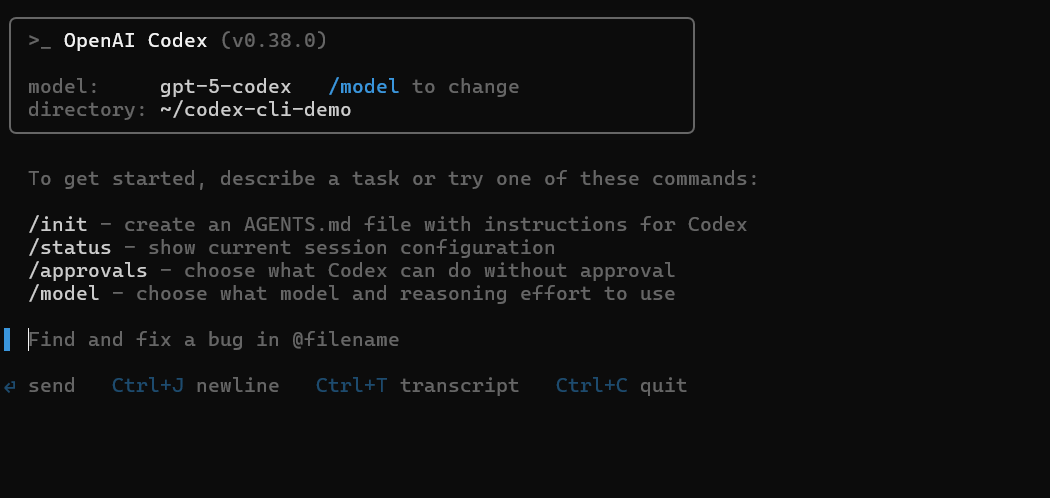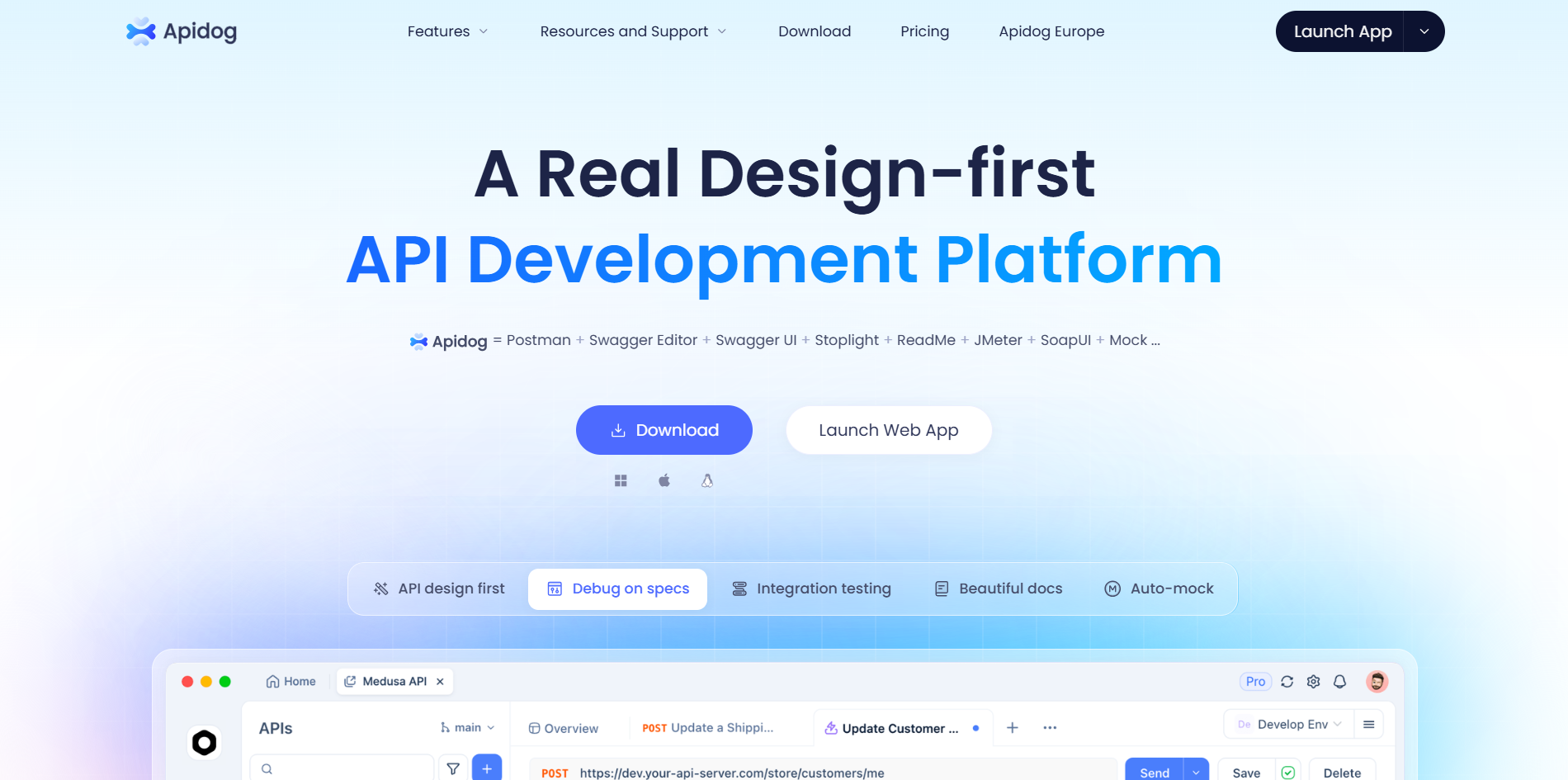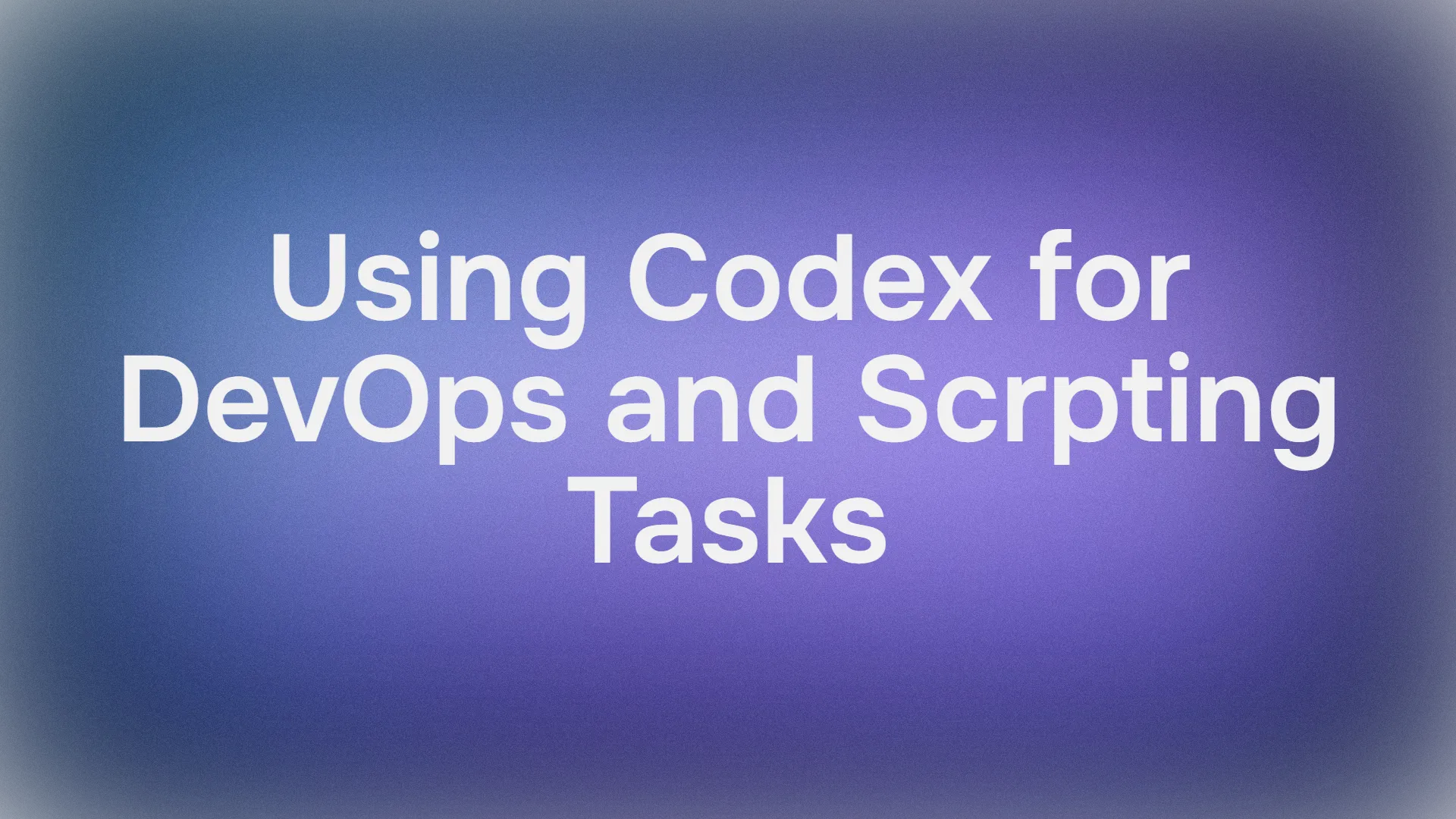Found yourself buried in a sea of deployment scripts, wondering if there's a smarter way to automate that CI/CD pipeline or configure those servers without pulling an all-nighter? If you're nodding along, you're in the right place. Codex, OpenAI's powerhouse AI coding agent, isn't just for whipping up quick code snippets—it's a secret weapon to Codex for DevOps and Codex for scripting tasks. Launched in 2021 and supercharged with GPT-5-Codex in 2025, this tool can generate, debug, and refine scripts that streamline your workflows, making DevOps feel less like a grind and more like a breeze. So, can Codex assist in DevOps or scripting tasks? Absolutely, and in this guide, we'll explore practical ways to make it happen. From defining tasks to integrating into pipelines, we'll show how Codex fits right into your ops game. By the end, you'll see how using Codex for DevOps can save time, reduce errors, and let you focus on the big picture. Let's dive in and automate like pros!
Want an integrated, All-in-One platform for your Developer Team to work together with maximum productivity?
Apidog delivers all your demands, and replaces Postman at a much more affordable price!
What is DevOps? A Quick Refresher
Before we get hands-on with Codex for DevOps, let's chat about what DevOps really is. At its heart, DevOps is a cultural and technical practice that merges software development (Dev) with IT operations (Ops). The goal? To shorten your product's lifecycle, delivering features, fixes, and updates at warp speed while staying aligned with business needs. Think continuous integration/continuous delivery (CI/CD), infrastructure as code (IaC), automated monitoring, and tight-knit collaboration between devs and ops folks.
Why does this matter? In a world where apps need to constantly improve, DevOps cuts the manual hassle, boosts reliability, and scales like a dream. Tools like Jenkins, Docker, and Kubernetes are staples, but scripting ties it all together. That's where Codex for scripting tasks shines—helping you craft those automation scripts without starting from scratch. If you're managing deployments or configs, Codex can be your co-pilot, making DevOps more accessible even for smaller teams.

Scripting Tasks in DevOps: The Glue That Holds It Together
Now, let's zoom in on scripting—the unsung hero of DevOps. Codex for scripting tasks is perfect here because these are the automated routines that keep your pipeline humming: setting up environments, deploying apps, configuring servers, monitoring health, backing up data, or scaling resources. Often written in Bash, Python, PowerShell, or even YAML for IaC tools like Terraform, these scripts eliminate human error and speed up repetitive jobs.
Imagine scripting a database backup or an auto-scaling rule—manually tweaking them can be tedious. But with Codex for DevOps, you describe what you need in plain English, and it generates robust, error-handling code. This not only saves time but ensures consistency across your ops. Ready to see how? Let's walk through a practical step-by-step guide to put Codex to work.

Step 1: Define Your DevOps or Scripting Task
Kicking off with Codex for scripting tasks starts with clarity. Nail down what you want to automate—say, deploying a Dockerized app or backing up a database. Decide on the language: Bash for simple shell ops, Python for logic-heavy stuff. Prompt Codex with details like "I need a script to deploy a Node.js app to AWS EC2 using Docker—include error checks and logging." This sets the stage for tailored code, ensuring Codex for DevOps aligns with your setup.
Step 2: Use Codex to Generate Initial Script
Now, let Codex do the heavy lifting. In the ChatGPT interface or CLI, prompt: “Write a Bash script to automate deployment of a Dockerized Node.js app to an AWS EC2 instance, including building the image, pushing to ECR, and running the container with environment vars.” Codex will output something like:
#!/bin/bash
# Build Docker image
docker build -t my-app:latest .
# Tag and push to ECR
docker tag my-app:latest <ECR_REPO>:latest
aws ecr get-login-password | docker login --username AWS --password-stdin <ECR_REPO>
docker push <ECR_REPO>:latest
# SSH to EC2 and deploy
ssh -i "key.pem" ec2-user@<EC2_IP> << EOF
docker pull <ECR_REPO>:latest
docker stop my-app || true
docker run -d -p 80:3000 --name my-app -e ENV_VAR=value <ECR_REPO>:latest
EOF
echo "Deployment complete" || echo "Error during deployment" >&2
This initial script from Codex includes basics like error handling, ready for tweaks. It's a time-saver for Codex for DevOps newbies.
Step 3: Review and Customize Generated Script
Codex nails the basics, but customization is key. Review for security (e.g., avoid hardcoding creds) and fit—prompt: “Add retry logic to the SSH connection in this script.” Codex refines it, adding loops or conditions. Explain parts with: “Break down this deployment step.” This iterative chat makes Codex for scripting tasks feel collaborative, ensuring the script matches your environment's quirks.
Step 4: Test Script in a Safe Environment
Safety first! Run the script in a staging setup—use a VM or Docker container to mimic prod. If errors pop, prompt Codex: “The script fails with 'permission denied' on SSH—suggest fixes.” It might recommend key perms or IAM roles. This debug loop with Codex for DevOps catches issues early, reducing prod risks.

Step 5: Automate Scripting Execution in CI/CD Pipelines
Level up by embedding the script in CI/CD. Prompt Codex: “Write a GitHub Actions workflow to run this deployment script after tests.” It generates YAML like:
name: Deploy App
on: [push]
jobs:
deploy:
runs-on: ubuntu-latest
steps:
- uses: actions/checkout@v2
- name: Run Deployment Script
run: bash deploy.sh
- name: Notify on Failure
if: failure()
uses: actions/slack-notify@v1
This automates the flow, letting Codex for scripting tasks handle pipeline configs too.
Step 6: Maintain and Extend Scripts with Codex
Scripts evolve—prompt Codex to add features: “Update this script with logging to CloudWatch and email notifications.” It inserts code for retries or integrations. Generate docs: “Add comments explaining each step.” This keeps Codex for DevOps scripts maintainable as projects grow.
Step 7: Use Codex CLI or IDE Plugins to Accelerate Script Development
For speed, use the Codex CLI: Install with npm install -g @openai/codex, auth with your key, and run codex generate --task "Bash deployment script for EC2". IDE plugins (VS Code extension) offer inline gen: Highlight a section and prompt “Add DevOps logging here.” This boosts Codex for scripting tasks efficiency.

Conclusion: Can Codex Assist in DevOps or Scripting Tasks? Yes—Here's the Proof
Wrapping up, Codex is a powerhouse for DevOps and scripting, turning manual drudgery into automated bliss. From generating initial scripts to debugging and pipeline integration, Codex for DevOps and Codex for scripting tasks save time and reduce errors. For API docs and debugging, download Apidog—it's free at apidog.com/download and perfect for testing your ops setups. So, can Codex assist in DevOps or scripting tasks? Absolutely—it’s your ultimate ops ally!




